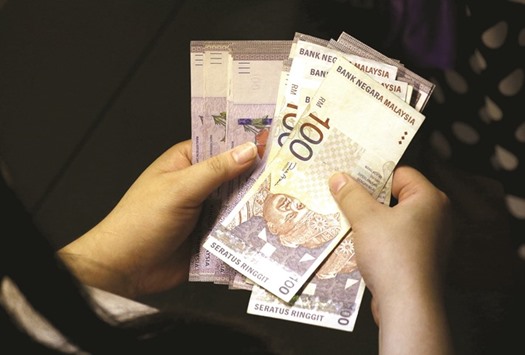PineBridge Investments says last month’s selloff in Malaysian bonds has created a buying opportunity, but the enforcement of trading restrictions by the central bank has convinced it to stay away.
The $83bn money manager controlled by Hong Kong tycoon Richard Li says Bank Negara Malaysia’s clampdown on trading in non-deliverable forwards has made it difficult for long-term investors to counter the foreign-exchange risk. Tokyo-based Mitsubishi UFJ Kokusai Asset Management Co said Malaysia’s assets may slide further amid concern currency intervention will sap its foreign-exchange reserves.
“In isolation, Malaysia should outperform from here but the outlook for bonds is blurred by the inability to hedge,” said Anders Faergemann, a senior sovereign portfolio manager at PineBridge in London. “We believe Bank Negara Malaysia has shot itself in the foot and has to quickly resurrect its credibility with foreign investors.”
Flagging oil prices and the prospect of higher US interest rates are punishing Malaysian assets, with the currency heading towards the weakest level since the 1998 Asian financial crisis. Bank Negara has warned foreign lenders against using offshore forwards to bet against the currency, a move that hurt sentiment towards the $132bn government bond market.
Malaysia’s 10-year bond yield surged to 4.46% on November 29, the highest level since September 2008 and was at 4.36% as of 11:34am in Kuala Lumpur on Friday. The ringgit slumped 8.3% over the past three months and slumped to 4.4707 per dollar on Thursday, near the 4.48 level in 2015 that was the weakest since the regional crisis.
The central bank responded to the slide on Nov. 13 by announcing it would reinforce rules that prohibit facilitation of ringgit non-deliverable forwards. On November 18, it said it was intervening in the currency market to support the
ringgit.
Bank Negara governor Muhammad Ibrahim said in a speech on the same day there is no new policy on capital flows and there’s “no proxy capital control.”
“When we heard the central bank had told banks not to quote dollar-ringgit and they followed up that intent by banning ways to hedge our bond position we were not impressed,” Faergemann said. “We are concerned the authorities will continue to intervene and that will clearly hamper the medium term outlook for bonds and FX.”
Mitsubishi UFJ Kokusai Asset Management, which oversees about $115bn, is also staying away.
“Malaysia’s currency and assets may see more downward pressure and it’s not the time to add them now,” said Hideo Shimomura, chief fund investor at the company in Tokyo. “Bank Negara will probably continue to intervene to support the currency, which would further reduce the amount of foreign reserves and that would make investors more nervous.” Malaysia’s foreign-exchange reserves have climbed to $98.3bn from a six-year low of $93.3bn in September 2015. They are still 30% below the peak of $141.4bn recorded in 2013. Second Finance Minister Johari Abdul Ghani said Wednesday the ringgit’s drop hasn’t led to a material decline in reserves.
Sentiment towards Malaysia had already been soured before the November 8 election of Donald Trump, which convinced traders the US Federal Reserve will raise interest rates this month. Global probes involving accusations of embezzlement relating to 1Malaysia Development Bhd have dogged Prime Minister Najib Razak for more than a year. The premier and the government fund have consistently denied wrongdoing. The next general election must be held by mid-2018.
“With domestics politics also weighing on sentiment, I am wary of Malaysian government securities despite the sizeable selloff,” said Eugene Leow, a fixed-income strategist at DBS Group Holdings in Singapore. “The NDF ruling hurt sentiment in the short-term. Confidence in the ringgit probably took a tumble as the market questions Bank Negara’s action.”

A customer counts ringgit banknotes outside a money changer at the central business district in Singapore. The currency slumped 8.3% over the past three months and slumped to 4.4707 per dollar on Thursday, near the 4.48 level in 2015 that was the weakest since the regional crisis.
